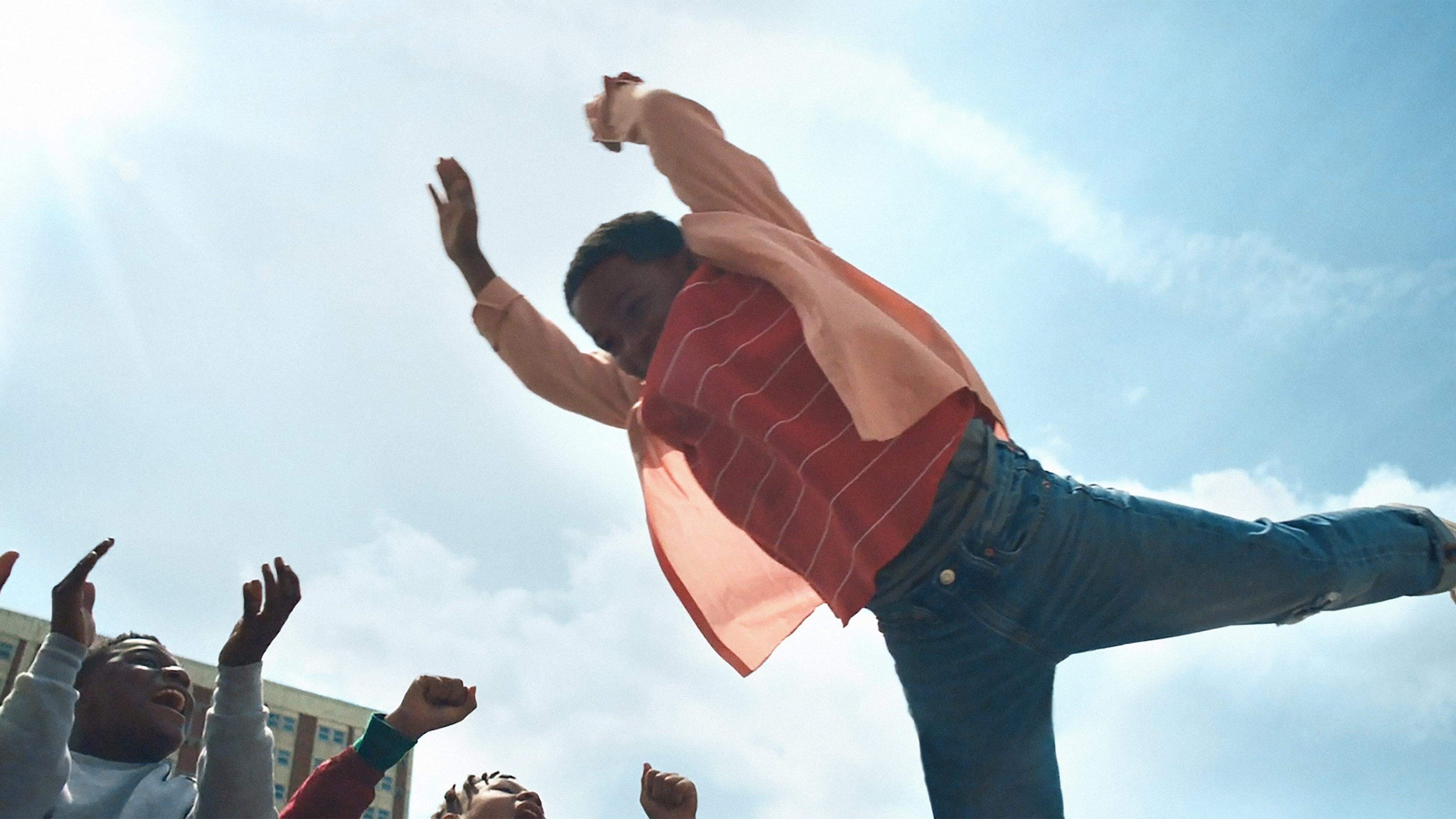We Grown Now review: A Chicago housing project plays backdrop to this wounding ’90s coming-of-age film
Minhal Baig’s gem of a film focuses on two young Black boys whose pride in where they’re from lights up the screen
Film Reviews We Grown Now
From its very first shot, Minhal Baig’s masterful We Grown Now grabs you. A still shot of an empty hallway (in, as we learn, the Cabrini-Green housing project in Chicago) beckons you to discover it, to let the many lives it houses drift through you. We hear scraping. We hear sneakers squeaking. We hear, and soon see, two kids. They’re carrying a mattress. There’s an unhurried sense of curiosity being awoken by this image, by this action. And with time, Baig’s latest feature further establishes itself as a gorgeous gem of a film with a distinct and engrossing sense of place.
The year is 1992 and the two boys we first meet in that opening sequence are best friends Malik and Eric (Blake Cameron James and Gian Knight Ramirez), two Black boys who have learned how to make Cabrini-Green an expansively imagined space in which to thrive. That mattress they painstakingly carry down several sets of stairs and then across an asphalted open area before they arrange it next to several other discarded ones soon becomes yet another way for them to jump—to fly into the guileless childhood they unknowingly cherish. Such innocence is the guiding principle of We Grown Now, whose title obviously nudges us to where the film will end up, at the moment when Malik and Eric will have to say goodbye to their time giddily making the most out of their days, whether at school or in the hallways of Cabrini-Green.
While Baig offers us some necessary context on this Chicago housing project before that very first shot—it was a public housing project designed for veterans that eventually came to house a mostly African-American population—her film grounds us in the sensory experience of such a place. Her camera roves around those hallways and those cramped spaces that house Eric and Malik’s families, each ravaged by loss and anguish. And yet there’s plenty of joy to be experienced. Whether jumping onto mattresses outdoors or racing one another in the scant patches of grass near the island-like building that is Cabrini-Green, We Grown Now is a portrait of an arrested and arresting childhood. It’s also a story about friendship, about two boys who find refuge in each other’s company, helping each other with test answers in the classroom, and eager to skip class to head to the Art Institute on a whim. They each feel safe around each other, sometimes not realizing the way their own safety is rather constricted, rather illusory when not in the arms of their loved ones.
That is precisely what each is forced to grapple with when a seven-year-old kid is shot in their neighborhood. Soon, Cabrini-Green becomes a kind of prison, their every entry and exit monitored by ID cards needed to move not-so-freely between it and the outside world. Late-night raids by police hoping to crack down on drugs and gang activity only make the peace they’d once cobbled together within its walls disappear with little warning. It’s no surprise Eric and Malik keep coming back to their makeshift rallying cry: “I EXIST! WE EXIST!” They yell it out into the air not so much to convince themselves as to remind the world of what it keeps clearly forgetting.
Throughout the film, we watch these two boys and their families assess the ever-changing world around them: Malik’s single mother (a soulful Jurnee Smollett) struggles with getting promoted and taken seriously at work, work that barely covers their living expenses. Eric’s single father (a grounded Lil Rel Howery) is still grieving, unsure how best to keep his unruly little son in check. Perhaps what they need is a way out. But if they do leave Calibri-Green, what does that mean for the life they’ve made there? Would that negate the sacrifices, say, Malik’s grandparents had made when they left the South for better prospects up North? Could a suburb, or a different town, even promise a better life? Would migration really be every generation’s burden?
Tackling those questions—and broader ones about public housing, brutal policing, racism, and urban planning—Baig’s film is a tender meditation on what we make with what we have and on the flights of imagination necessary to carve new paths ahead. It’s an intimate film that’s awash with beauty: “There’s poetry in everything,” Malik’s grandmother (S. Epatha Merkerson) tells him at one point—she may as well be describing the very aesthetic of We Grown Now. Everything from its sun-dappled cinematography (Pat Scola finding warmth in the grittiness of Cabrini-Green) to its lush score (Jay Wadley going big and bold to engulf us in Eric and Malik’s playful tenor) finds Baig’s film defying expectations about the story it can be, the place it is capturing. There’s artistry here in how a boy’s world is coming to a close, an elegy for what was and a welcome invitation to see what could yet be.
We Grown Now opens in theaters in New York, Los Angeles & Chicago on April 19, 2024, and nationwide on May 10, 2024